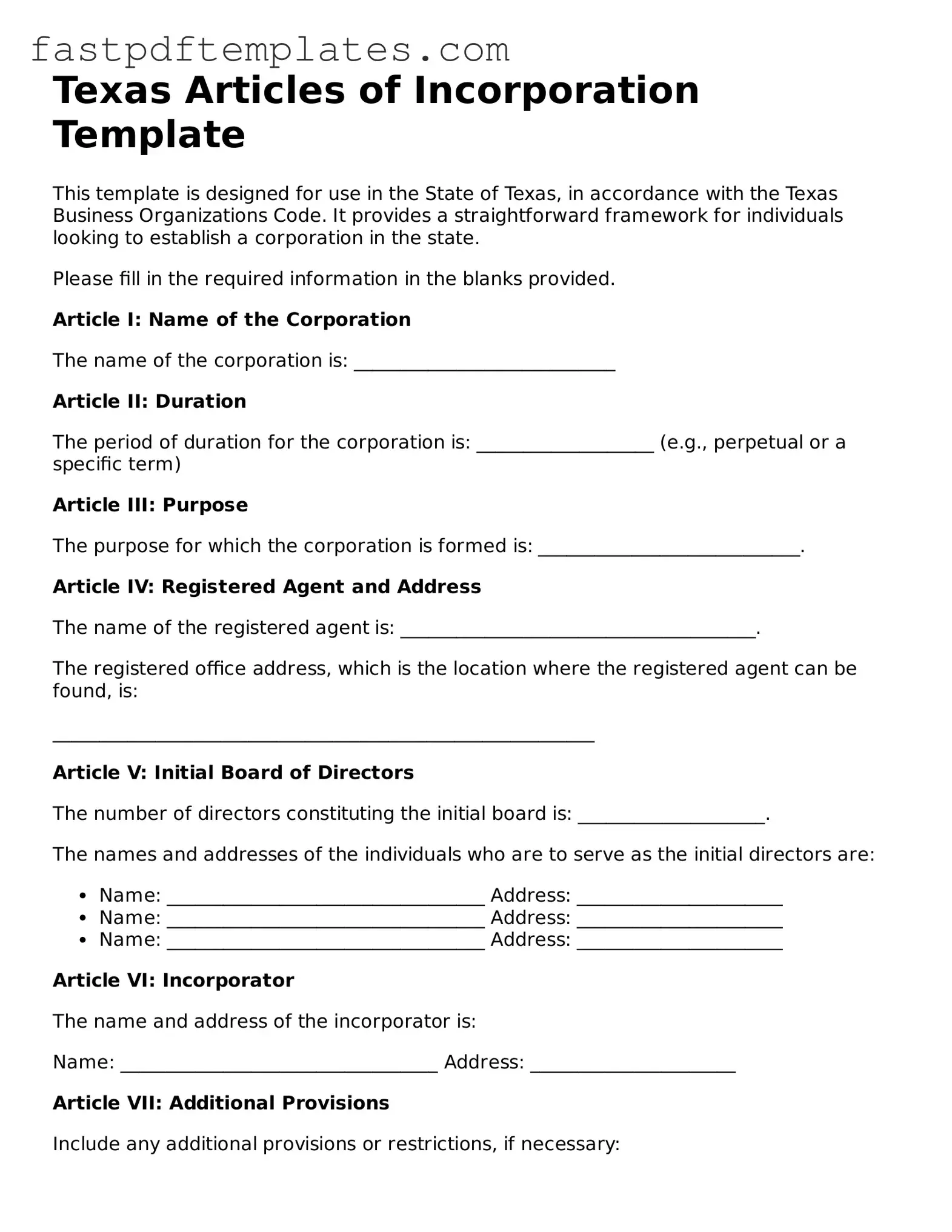Texas Articles of Incorporation Template
This template is designed for use in the State of Texas, in accordance with the Texas Business Organizations Code. It provides a straightforward framework for individuals looking to establish a corporation in the state.
Please fill in the required information in the blanks provided.
Article I: Name of the Corporation
The name of the corporation is: ____________________________
Article II: Duration
The period of duration for the corporation is: ___________________ (e.g., perpetual or a specific term)
Article III: Purpose
The purpose for which the corporation is formed is: ____________________________.
Article IV: Registered Agent and Address
The name of the registered agent is: ______________________________________.
The registered office address, which is the location where the registered agent can be found, is:
__________________________________________________________
Article V: Initial Board of Directors
The number of directors constituting the initial board is: ____________________.
The names and addresses of the individuals who are to serve as the initial directors are:
- Name: __________________________________ Address: ______________________
- Name: __________________________________ Address: ______________________
- Name: __________________________________ Address: ______________________
Article VI: Incorporator
The name and address of the incorporator is:
Name: __________________________________ Address: ______________________
Article VII: Additional Provisions
Include any additional provisions or restrictions, if necessary:
__________________________________________________________________________
Article VIII: Effective Date
The effective date of the formation of this corporation is: ___________________ (if different from the filing date).
IN WITNESS WHEREOF,
the undersigned incorporator has executed these Articles of Incorporation on this _____ day of ____________, 20____.
Signature: _______________________________________
Name: ___________________________________________
This template is a starting point for creating Articles of Incorporation in Texas. Always consider consulting with a professional for tailored guidance.

